Abstract
OBJECTIVE: To obtain and contrast the informed opinions of people in five decision-making groups that could have a role in devolved governance of health care and social services. DESIGN: Deliberative polling. SETTING: Three rural and three urban communities selected from the 32 areas covered by a district health council in Ontario. PARTICIPANTS: A total of 280 citizens from five potential decision-making groups: randomly selected citizens, attendees at town-hall meetings, appointees to district health councils, elected officials and experts in health care and social services. INTERVENTION: Participants' opinions were polled during 29 structured 2-hour meetings. MAIN OUTCOME MEASURES: Participants' opinions on their personal willingness and their group's suitability to be involved in devolved decision making, desired type of decision-making involvement, information preferences, preferred areas of decision-making involvement and preferred composition of decision-making bodies. RESULTS: Mean attendance at each meeting was 9.6 citizens. Although there were some significant differences in opinion among the five potential decision-making groups, there were few differences among citizens from different geographic areas. A total of 189 (72%) of people polled were personally willing to take on a role involving responsibility for overall decision-making, but far fewer thought that their group was suited to taking on responsibility (30%) or a consulting role (55%). Elected officials were the most willing (85% personally willing, 50% thought their group was suitable) and randomly selected citizens the least willing (60% personally willing, 17% thought their group was suitable) to take responsibility for overall decision making. Most citizens polled indicated less interest in involvement in specific types of decisions, except for planning and setting priorities, than in overall decision making. Only 24 participants (9%) rated their own group as suitable to take responsibility for raising revenue, 91 (33%) deemed their group suited to distribution of funds and 108 (39%) felt their group was suitable for management of services. People in all five groups ranked health care needs (mean rank 1.5 out of four options) as the most important and preferences (mean rank 3.6) as the least important information. They rated a combination body involving several community groups as the most suitable overall decision-making body (8.8 on 10-point scale). Participants favoured the representation of elected officials, the provincial government and experts on combination bodies responsible for the specific types of decisions. Overall, as the complexity of devolved decision making became clear, participants tended to assign authority to traditional decision makers such as elected officials, experts and the provincial government, but also favoured a consulting role for attendees at town-hall meetings (i.e., interested citizens). CONCLUSION: There are significant differences among groups in the community in their willingness to be involved, desired roles and representation in devolved decision making on health care and social services in Ontario.
Full text
PDF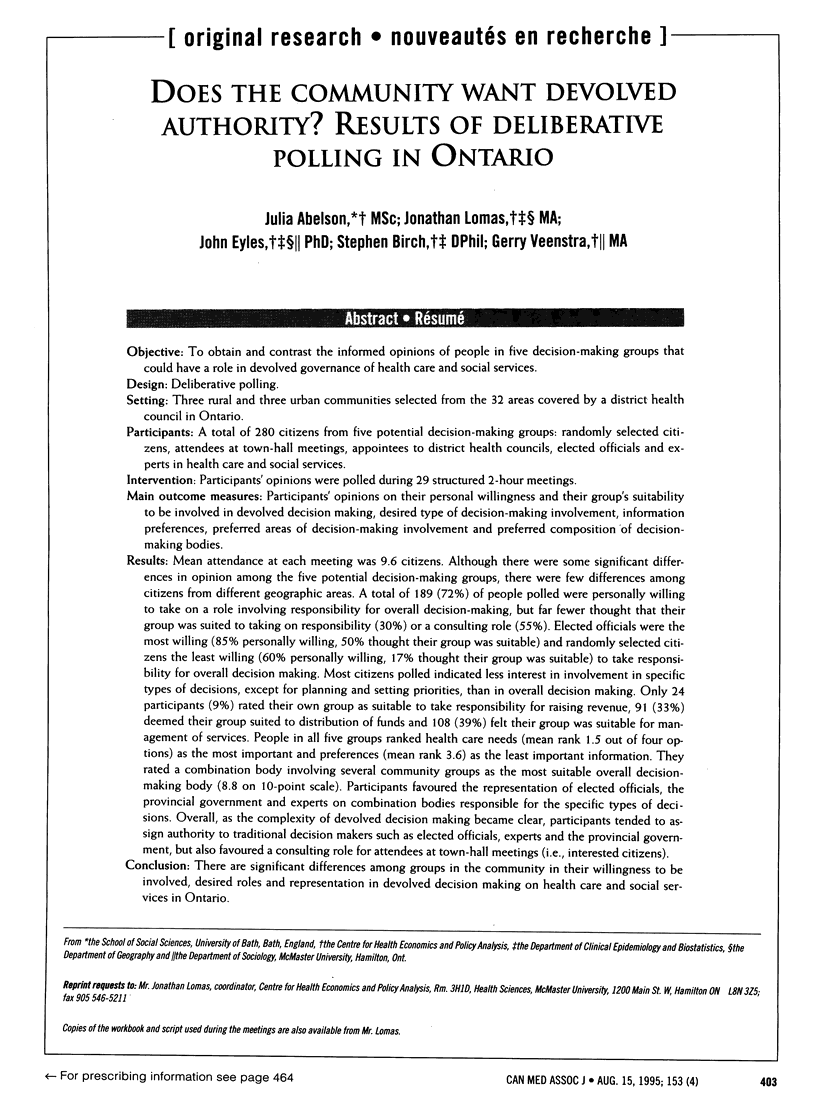
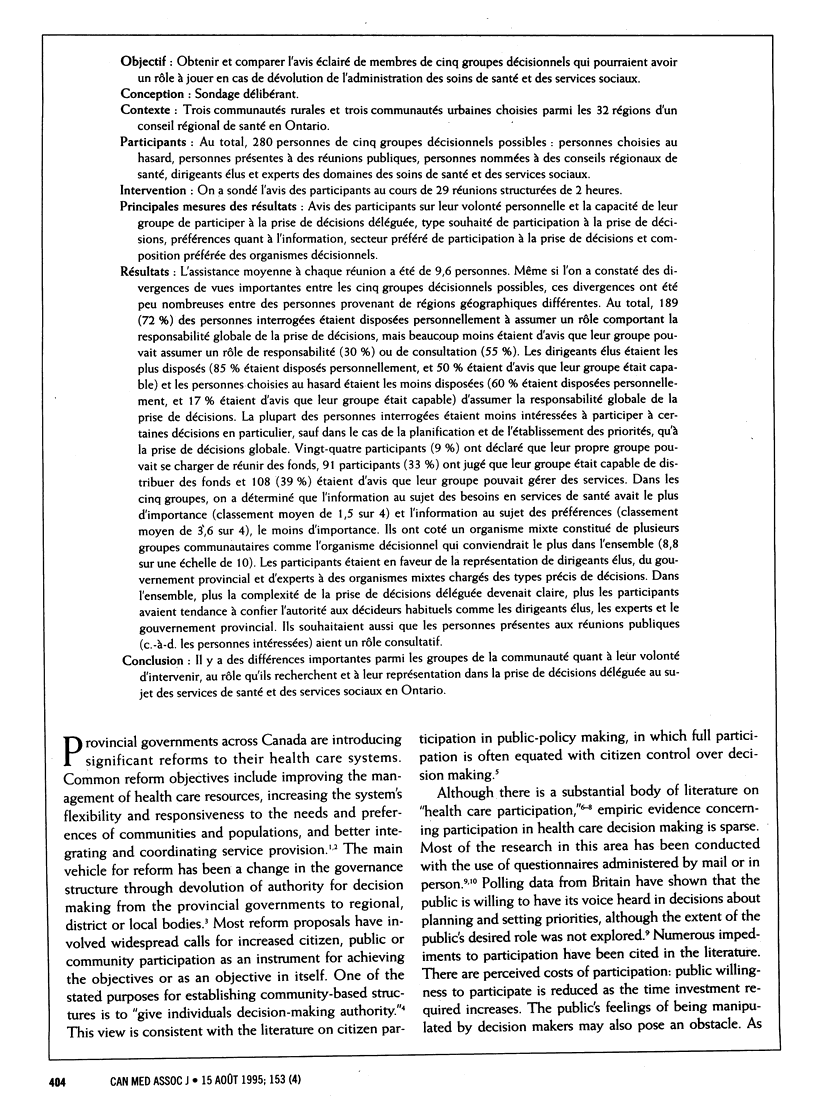
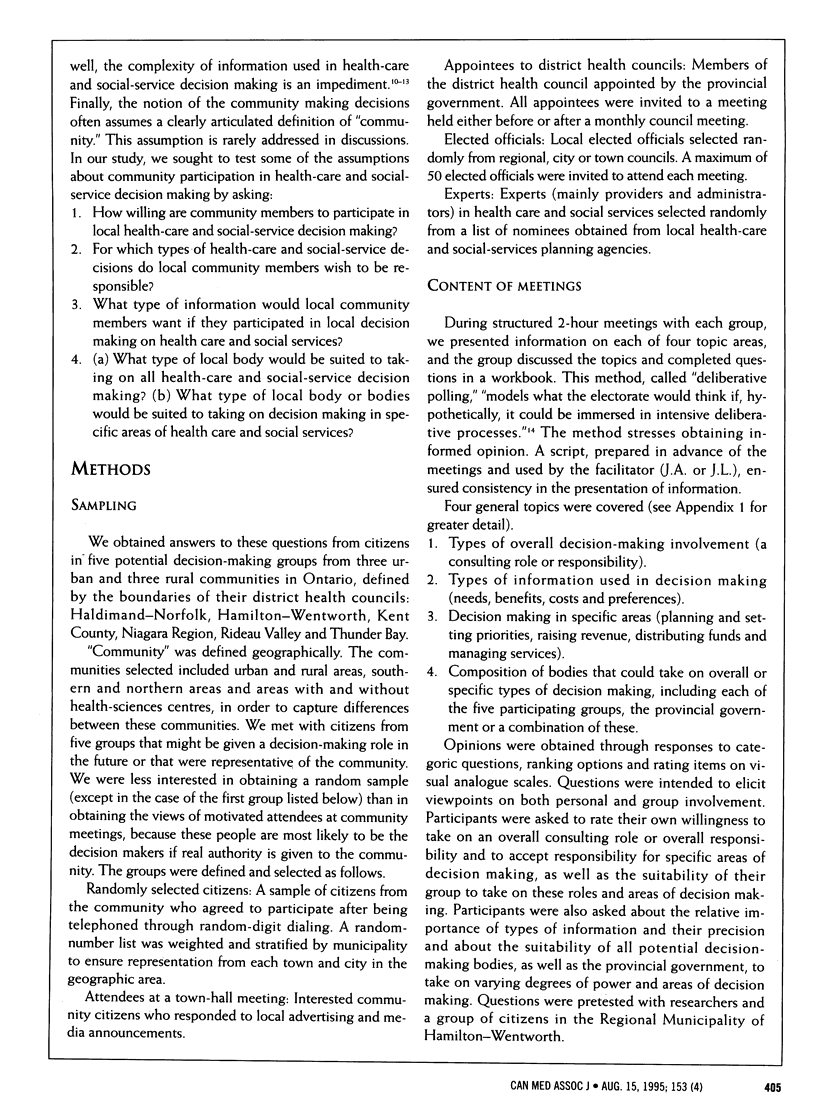
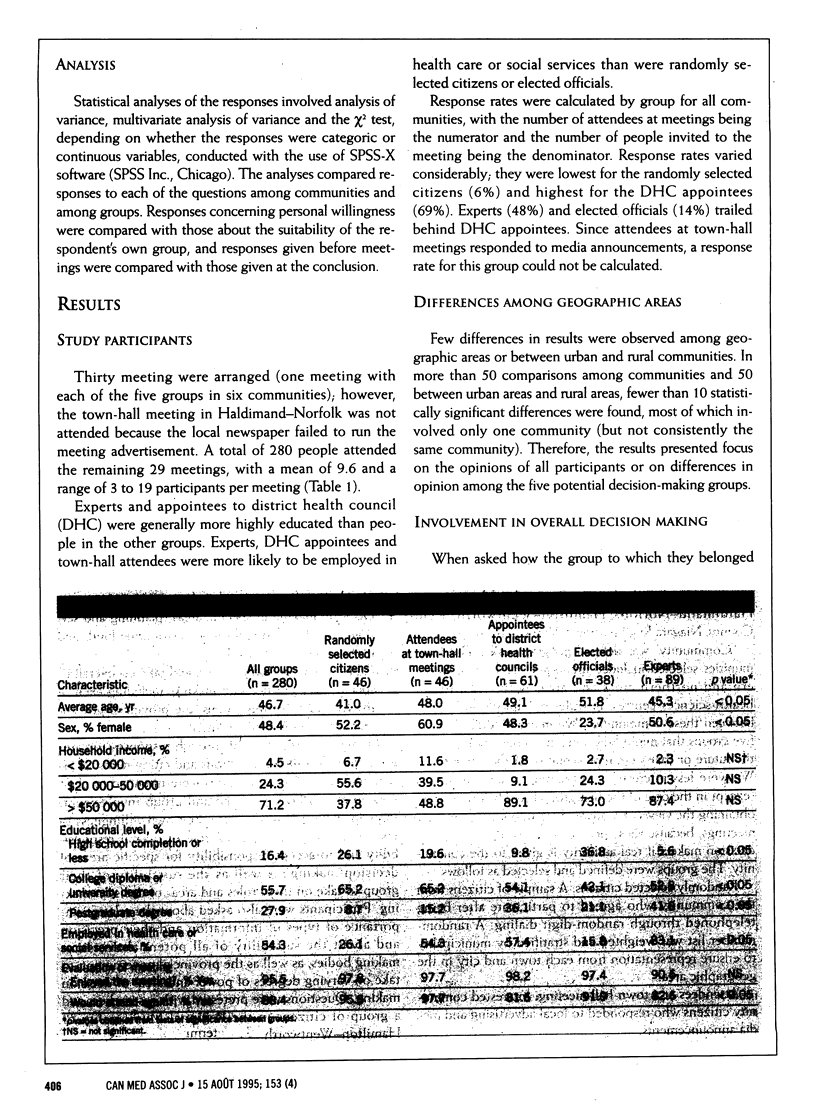
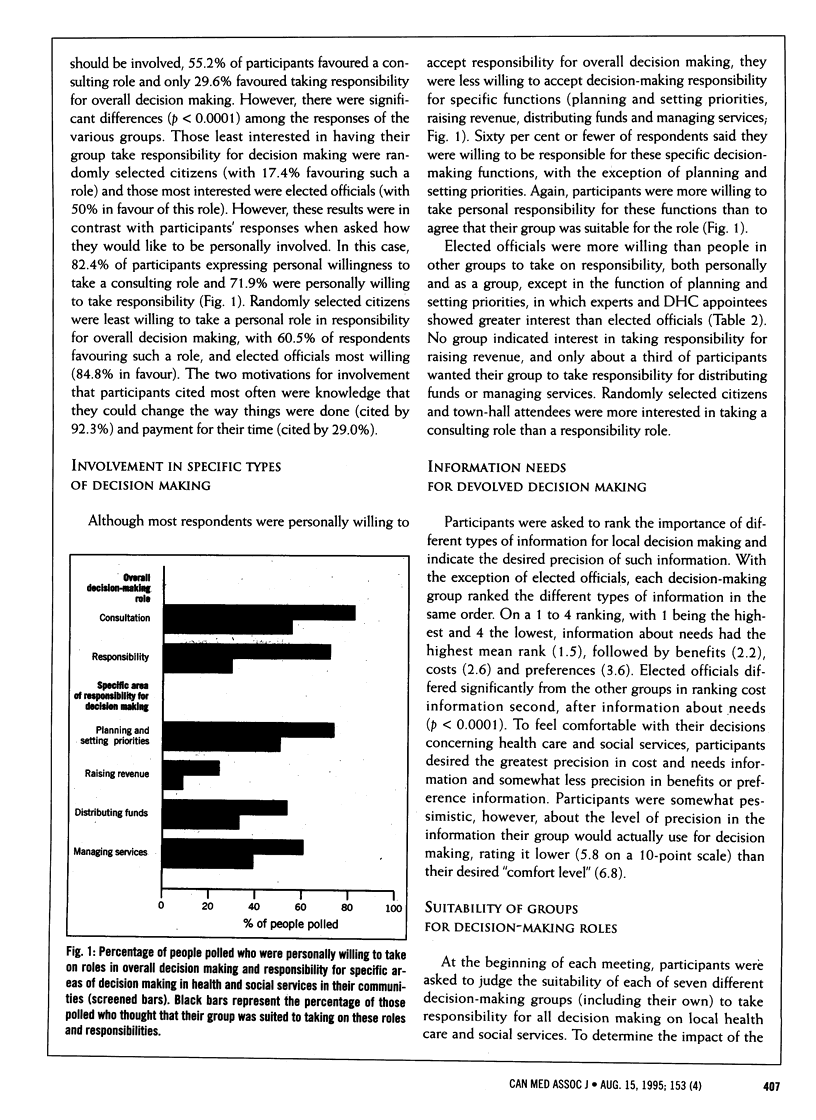
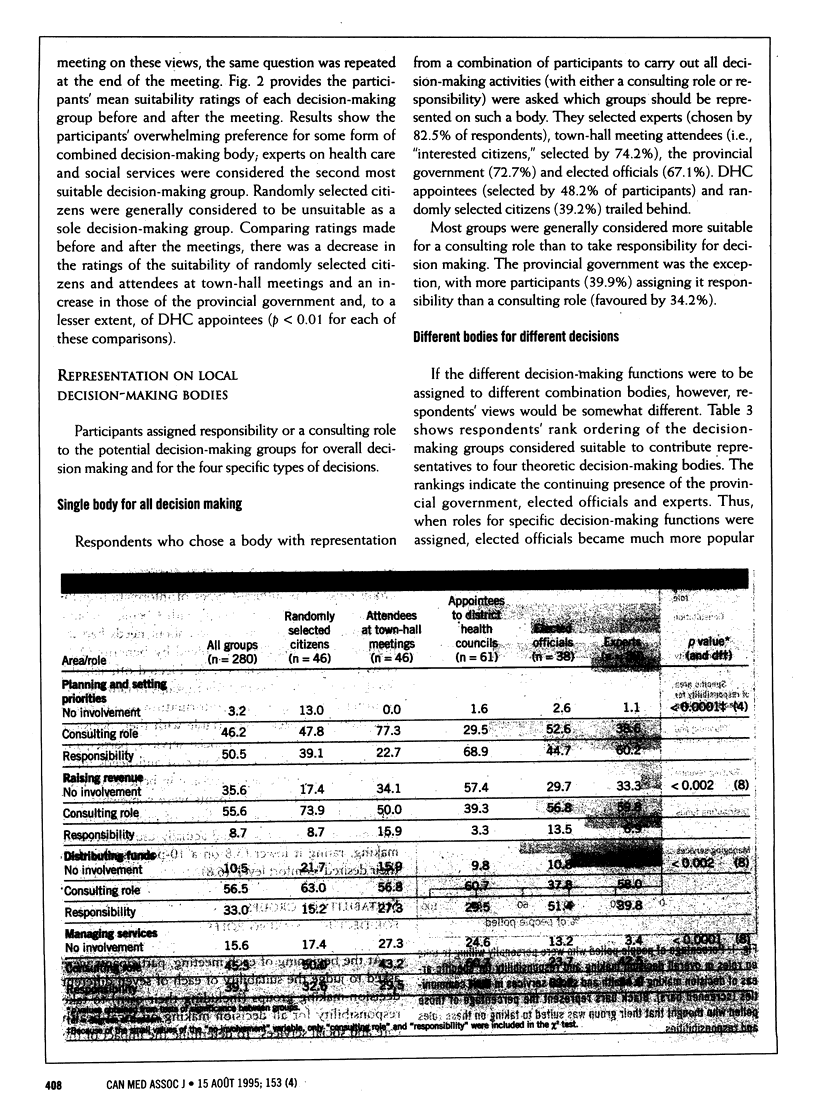
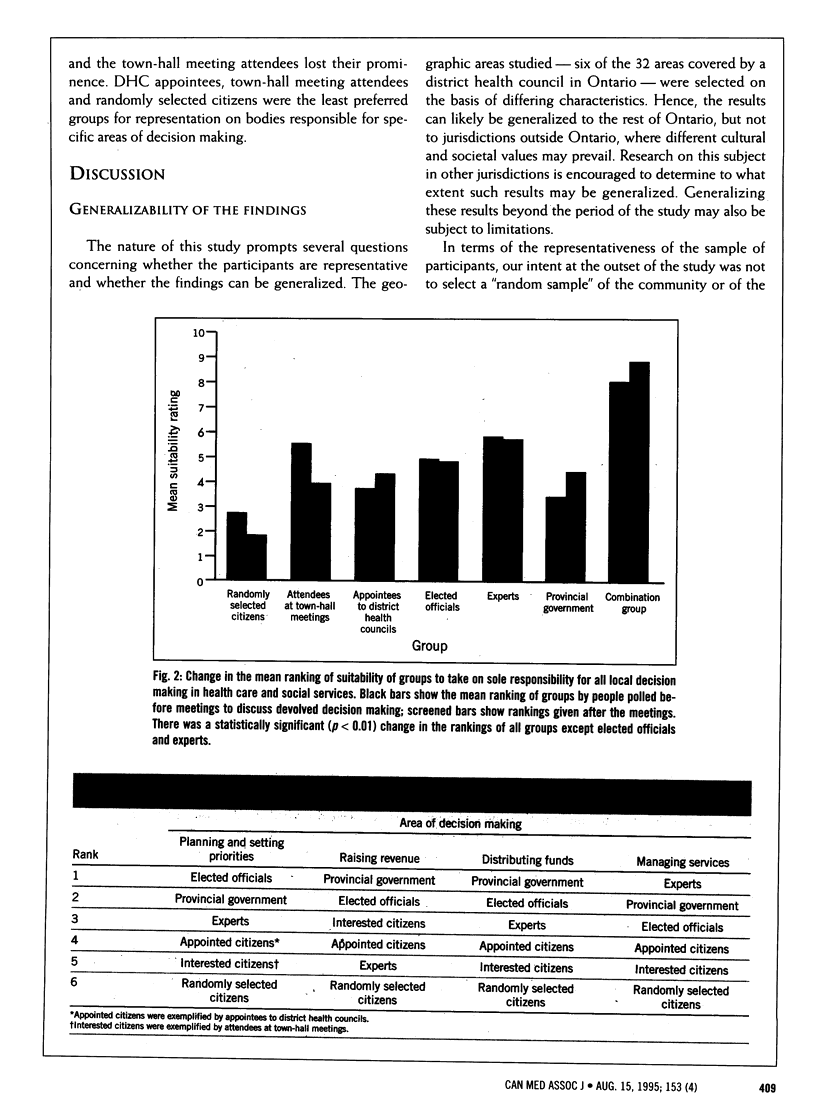
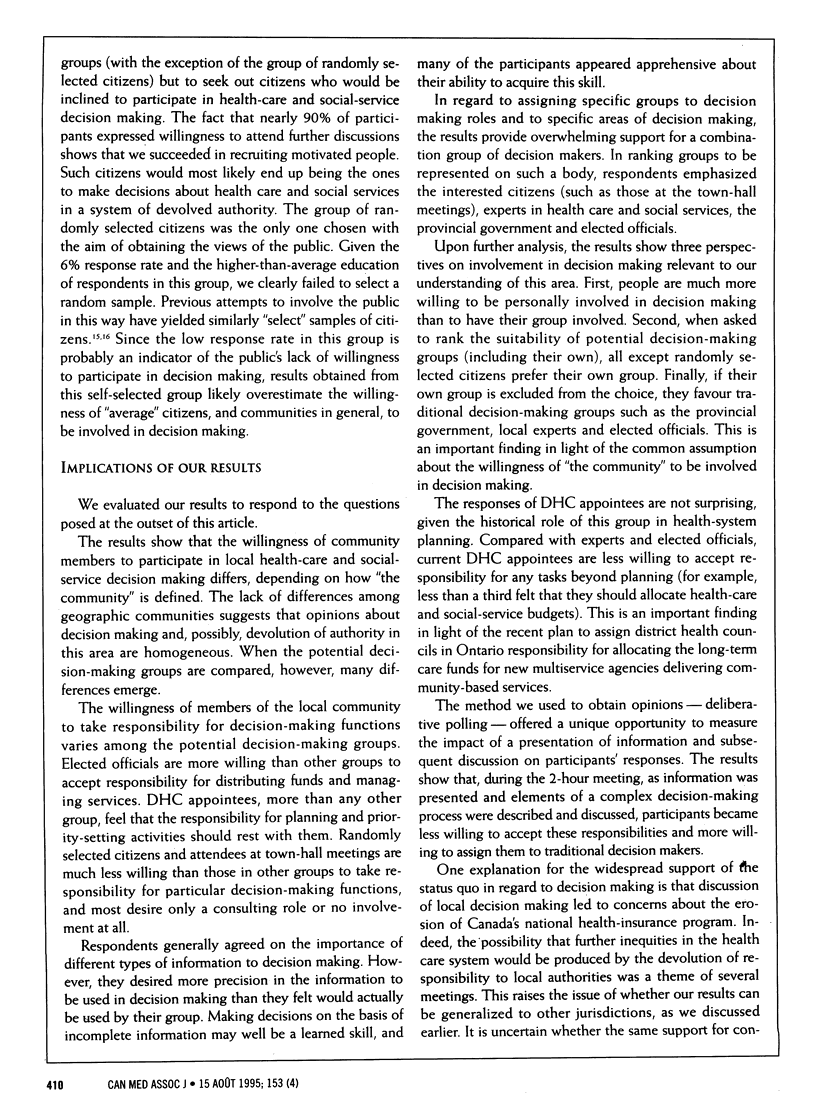
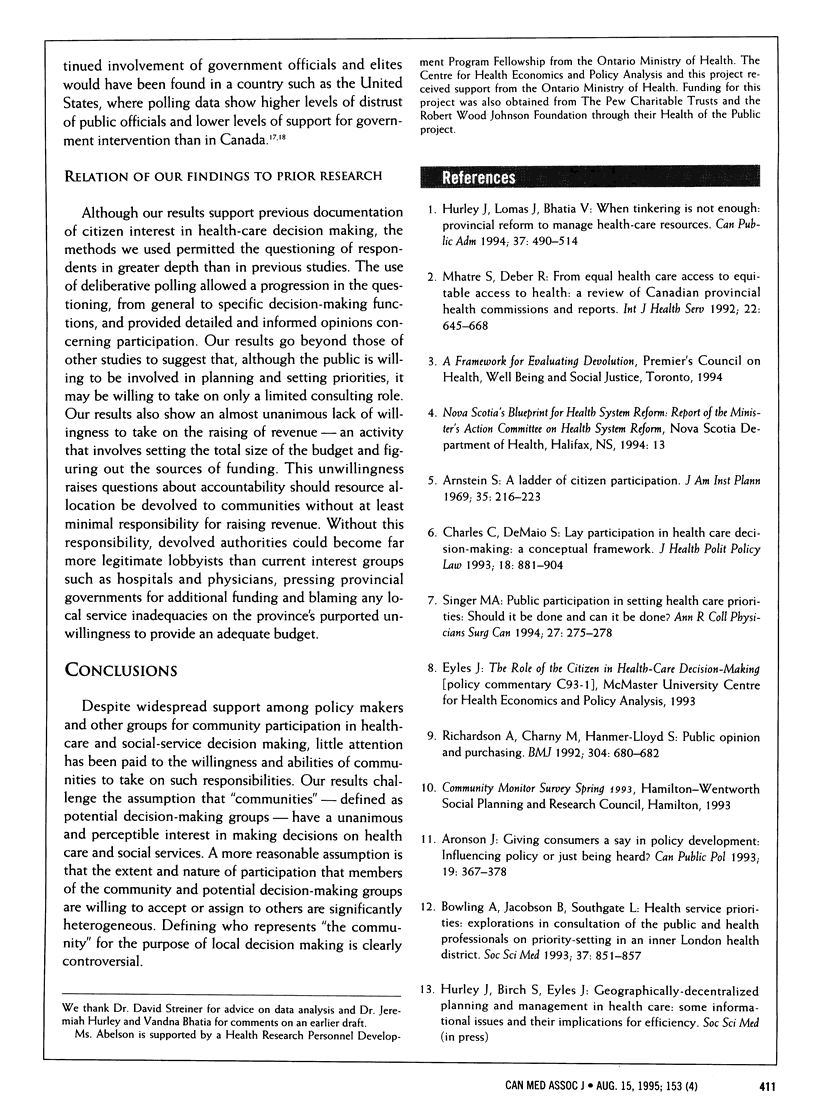
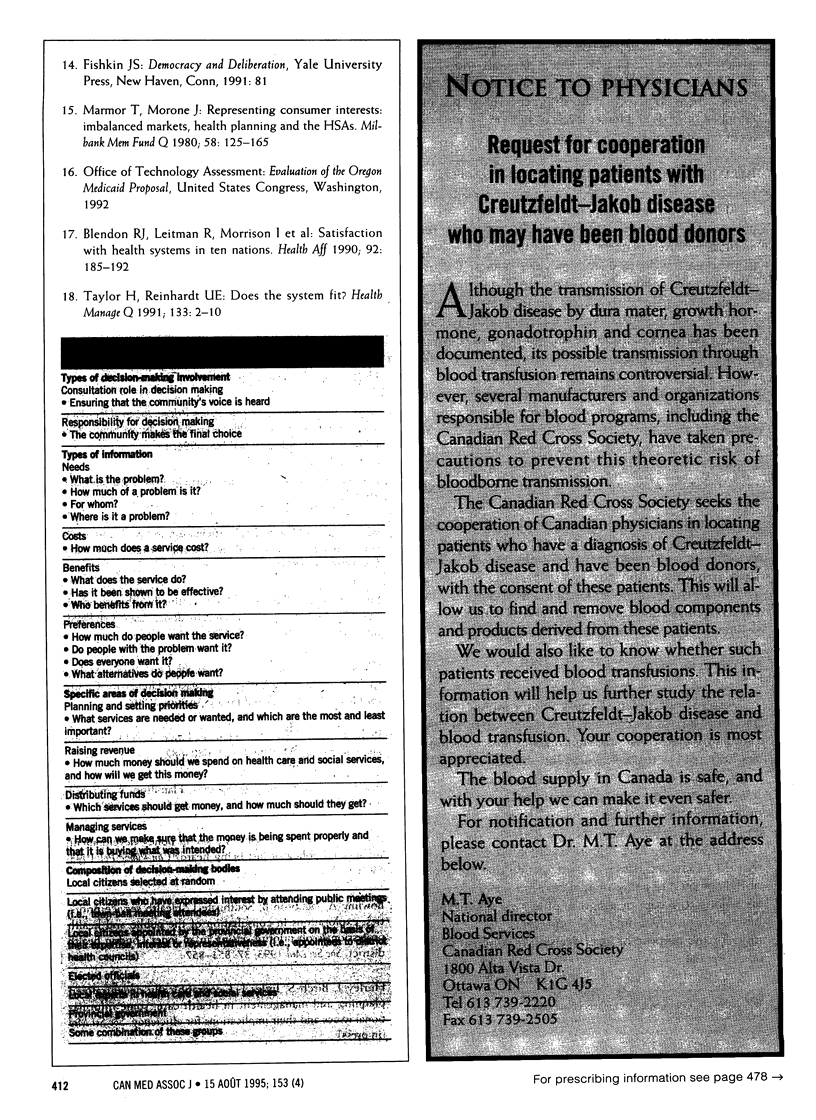
Selected References
These references are in PubMed. This may not be the complete list of references from this article.
- Blendon R. J., Leitman R., Morrison I., Donelan K. Satisfaction with health systems in ten nations. Health Aff (Millwood) 1990 Summer;9(2):185–192. doi: 10.1377/hlthaff.9.2.185. [DOI] [PubMed] [Google Scholar]
- Bowling A., Jacobson B., Southgate L. Explorations in consultation of the public and health professionals on priority setting in an inner London health district. Soc Sci Med. 1993 Oct;37(7):851–857. doi: 10.1016/0277-9536(93)90138-t. [DOI] [PubMed] [Google Scholar]
- Charles C., DeMaio S. Lay participation in health care decision making: a conceptual framework. J Health Polit Policy Law. 1993 Winter;18(4):881–904. doi: 10.1215/03616878-18-4-881. [DOI] [PubMed] [Google Scholar]
- Marmor T. R., Morone J. A. Representing consumer interests: imbalanced markets, health planning, and the HSAs. Milbank Mem Fund Q Health Soc. 1980 Winter;58(1):125–165. [PubMed] [Google Scholar]
- Mhatre S. L., Deber R. B. From equal access to health care to equitable access to health: a review of Canadian provincial health commissions and reports. Int J Health Serv. 1992;22(4):645–668. doi: 10.2190/UT6U-XDU0-VBQ6-K11E. [DOI] [PubMed] [Google Scholar]
- Richardson A., Charny M., Hanmer-Lloyd S. Public opinion and purchasing. BMJ. 1992 Mar 14;304(6828):680–682. doi: 10.1136/bmj.304.6828.680. [DOI] [PMC free article] [PubMed] [Google Scholar]
- Taylor H., Reinhardt U. E. Does the system fit? Health Manage Q. 1991;13(3):2–10. [PubMed] [Google Scholar]


